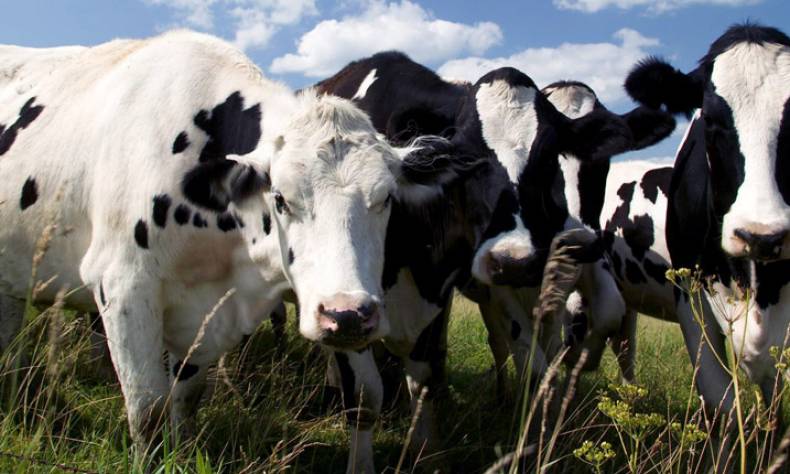
And Now, Where’s the Beef?
So, a Chinese company announced November 23 that it was going to open the largest cloning factory in the world. The Boyalife Group, a cloning company based in Wuxi, Jiangsu Province, has said that its primary goal is to clone cattle so to meet China’s beef shortage, its statement outlining plans to clone 100,000 cattle embryos initially with aspirations of upping production to 1 million in time.
China is hugely concerned with any form of dependency whatsoever when it comes to food security, so in that regard, the company does seem to be singing the right kind of tune as it seeks government approval.
Xu Xiaochun, CEO of the company, told the New York Times last week that cloning technology is all around and that the process is like “pouring a glass of orange juice into another empty glass.” Harmless enough, right? What could possibly go wrong given that the company’s website spelled it ‘introductoin” when looking to explain its mission? When cloning something that a person is going to consume, one might have thought that attention to detail is of the highest priority. Then again, this is the same guy who said that he needed to be “self-restrained” when asked about human cloning, saying that the only thing holding the company back is the “possible adverse reaction.”
Given the longstanding resistance to GMO rice in China, it is difficult to see this company gaining approval to clone meat for consumption anytime soon. But if not meat for consumption, then what will the business do? The official statement says that Boyalife will also specialize in the cloning of racehorses (a nice side hustle for wealthy businessmen, no doubt) and dogs, but that will unlikely be enough to pay the bills for such an expensive operation.
Despite the timeliness of the issue as the media is bombarded with stories of super babies after the recently concluded International Summit on Human Gene-Editing in Washington D.C. – it is also important to differentiate between cloning and genetic engineering or modification – this is not a story about such controversial topics, but instead one about food security.
Will the world public ever accept biologically tampered-with foods? Should we? Is it safe? Has it been tested enough? And will advancements in such fields lead to further genetic alterations?
GMO foods are already widespread in certain parts of the world, with the U.S. leading the charge. While many of the GMO crops in the U.S. are used for animal feed (and the meat subsequently not required by law to be labeled), the product with the highest number of approved crops – corn – ends up as an ingredient in many manufactured products in the form of high fructose corn syrup. The situation in Europe is far more stringent, with many countries implementing bans on genetically modified crops.
The Food and Drug Administration in the U.S. recently approved genetically-modified salmon for human consumption, declaring it as safe as farm-raised salmon (never mind that farm-raised salmon comes with a host of safety concerns of its own). To say that genetically-modified salmon is so safe that it does not require a label is unconscionable and a representation of where the FDA’s interests lie (i.e. it rhymes with bagricultural hobbies).
While the FDA declared cloned beef and the derivative products from the offspring of cloned animals safe for consumption back in 2008, the EU has taken a drastically different approach, banning all animal cloning, as well as cloned offspring and their products from the EU. The ban was implemented citing ethical, animal welfare, and consumer-based concerns.
It is a given that genetically-modified crops and animals, cloned animals and their offspring, and other such scientific breakthroughs are to become part of the world’s food supply. Perhaps they will help ease the burden of global food security while reducing the collective carbon footprint. Or perhaps their introduction will result in the rise of mutant, X-Men-type super-beings that will wipe us out entirely. At this point, no one knows with any certainty. But what should be required, without question, is the option to choose GMO or not, cloned or not. The advent of biologically-tampered food is not the issue, because that cloned cow has already bolted; no, it is the absolute necessity for greater transparency by the government regulators and agricultural companies involved that is the greater issue, so that consumers can speak with the only volume that companies (and governments) hear: inventory sold and monies made.
 Facebook
Facebook
 Twitter
Twitter
 Linkedin
Linkedin
 Google +
Google +











Yeah, after Dolly, the sheep – aka the world’s first cloned mammal- died very young, many wondered whether her early death due to her being a clone.
One day, the animals will rise up and punish mankind for all the cruelty they have inflicted upon them. Heed my words! Have you never read Animal Farm? Have you never watched Hitchcock’s The Birds?
I wish I could clone some super good-looking celebrities and keep them as my boyfriends. Of course, I would rotate them to match the seasons cos you always gotta be in style.